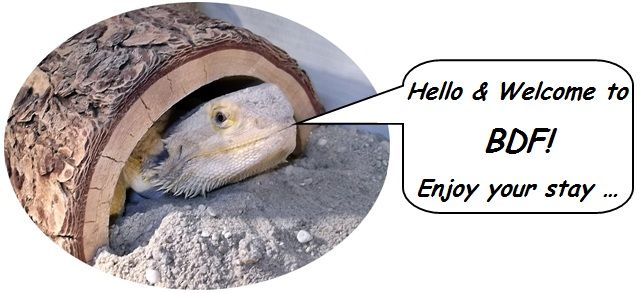meesh18
Bearded Dragon Egg
- Messages
- 14
Hello All!
I have a 2 month old female bearded dragon that will not eat her veggies/fruit. I've tried offering it first thing in the morning, putting a variety in her food dish (lots of different smells and colors) as well as even adding worms. Nothing! She eats her insects like a champ but not her veggies. I've never had this problem before when my Jo-Jo was a baby. Any ideas? Thank you.
I have a 2 month old female bearded dragon that will not eat her veggies/fruit. I've tried offering it first thing in the morning, putting a variety in her food dish (lots of different smells and colors) as well as even adding worms. Nothing! She eats her insects like a champ but not her veggies. I've never had this problem before when my Jo-Jo was a baby. Any ideas? Thank you.
 hope I helped!
hope I helped!